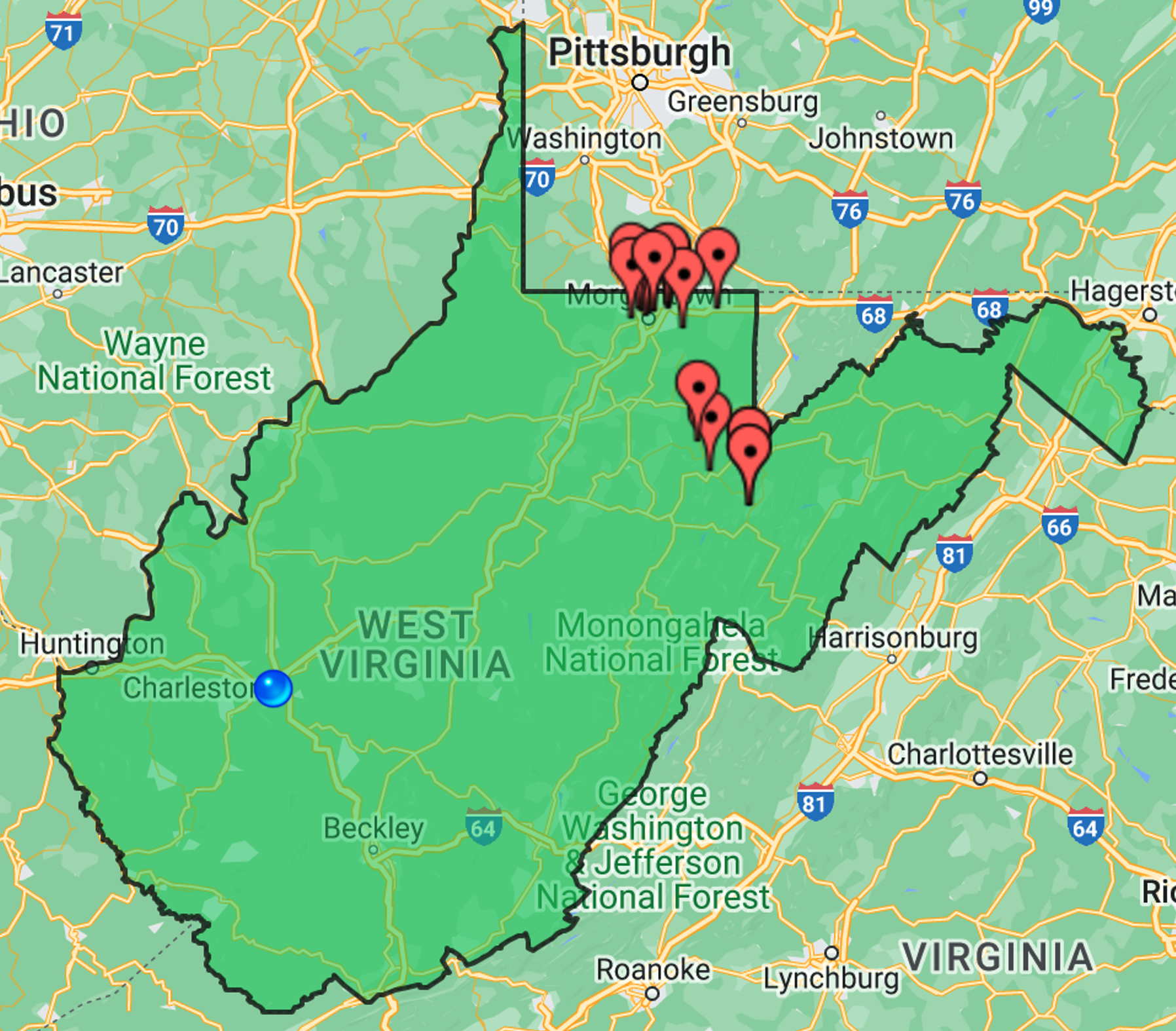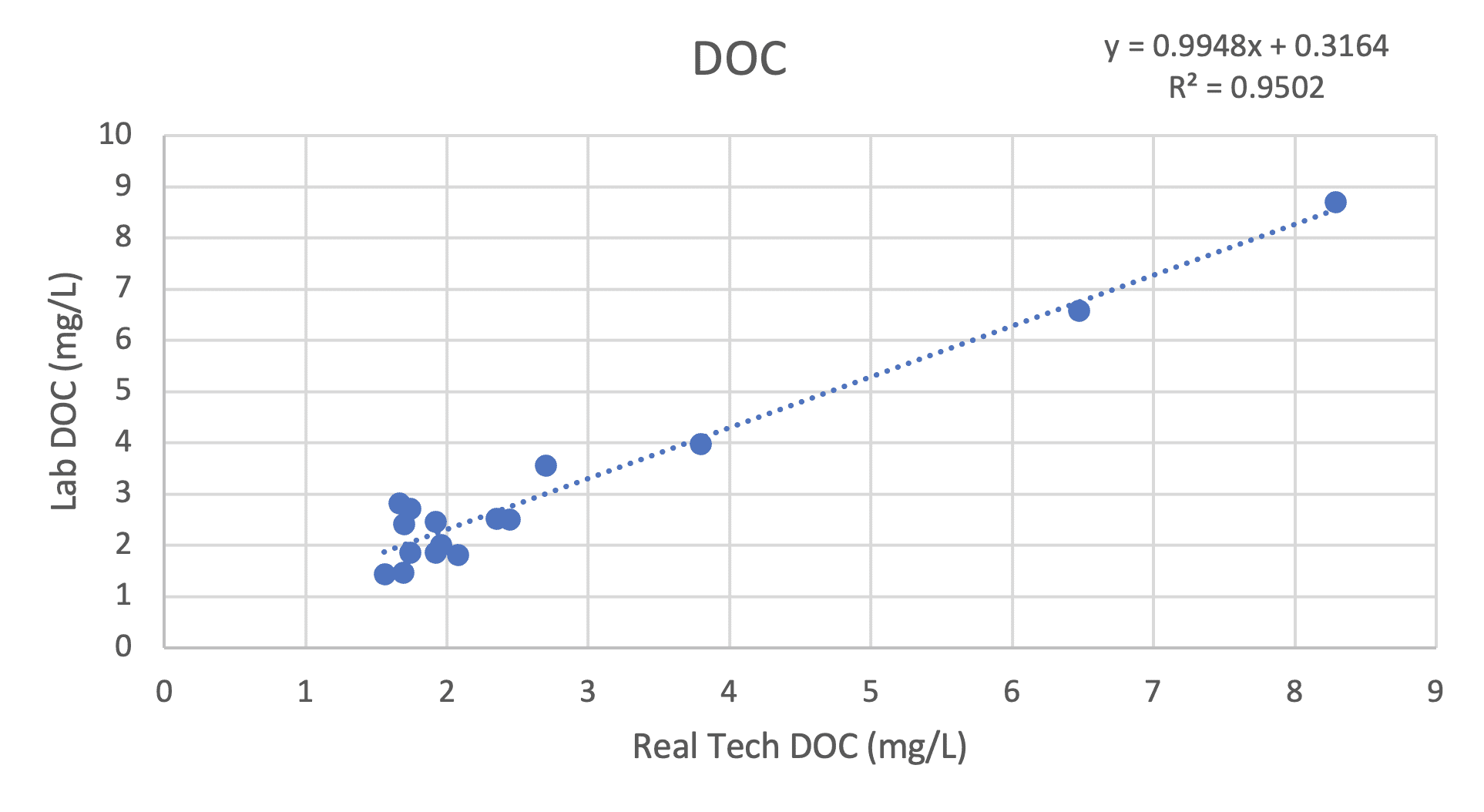For watershed monitoring, samples are needed from multiple locations that are typically far from each other. As traveling to remote locations is itself very time consuming, the time spent on doing the water analysis, from sample collection to getting the results, becomes even more critical. In West Virginia, some of the types of water bodies in the watershed, like blackwater rivers, possess unique features. This highlights the importance of organics monitoring even further as organic contents of the waters can vary greatly across different sampling locations both in terms of quantity and quality. The concentration and composition of organics in surface waters are key to understanding both the impacts of natural events like storms and human generated pollution on water quality.
The Challenge
For some water quality parameters, such as pH, temperature and conductivity, tools utilizing quick measuring techniques have existed for many years. However, for more complex parameters like dissolved organic carbon (DOC), the conventional measurement techniques have traditionally been either labor and time intensive, or even worse, have required shipping samples to a lab for analysis. When the analysis cannot be carried out at the site, the samples often need to be conditioned by adding preservatives and stored in a temperature-controlled container. All of these steps increase the margin of error in the results in addition to tremendously adding to the time required for getting the results. Moreover, when a sampling error compromising the integrity of the sample occurs, it may not become known until the results are available, and therefore the sampling process may need to restart from scratch causing major hardship for data accumulation and review.
The Solution
Real Tech offers portable field meters that measure DOC in just a few seconds, on the spot and without the need for any reagents. Therefore, the results can be obtained almost instantaneously, and multiple samples can be analyzed onsite with minimal labor allowing for more samples to be analyzed per location as well as more locations to be monitored. This, in turn, leads to better spatial and temporal representation of actual water quality data.
The Results
University of West Virginia acquired Real Tech’s OP200 Series Field Meter for rapid DOC analysis, and in a bid to evaluate the meter’s accuracy and reliability, collected samples from 20 locations representing various water environments across the state of West Virginia (Figure 1). The samples were analyzed for DOC onsite using the field meter as well as being stored and shipped to a lab for conventional DOC analysis. The results from the field meter were compared with the lab results to evaluate the field meter’s performance. As can be seen in Figure 2, the regression analysis shows excellent agreement between the field meter and lab testing results across a DOC range of 1 to 10 mg/L. The researchers are planning to expand on these results by collecting samples from many additional locations, which will further demonstrate the capabilities of the meter as a useful tool for surface water quality monitoring in a wide range of environments.
Problems Solved
• Provide an accessible and affordable field monitoring tool for DOC testing
• Identification of unique water systems like blackwater rivers
• Accurate to the laboratory testing within an average absolute DOC value of ±0.4 mg/L
• Low-cost and reagent free investment, unlike expensive TOC/DOC analyzers,
providing simple to use and easy to maintain monitoring solution
Figure 1 – Sample collection locations
Figure 2 – Regression Analysis comparing lab DOC values
to field meter DOC values


